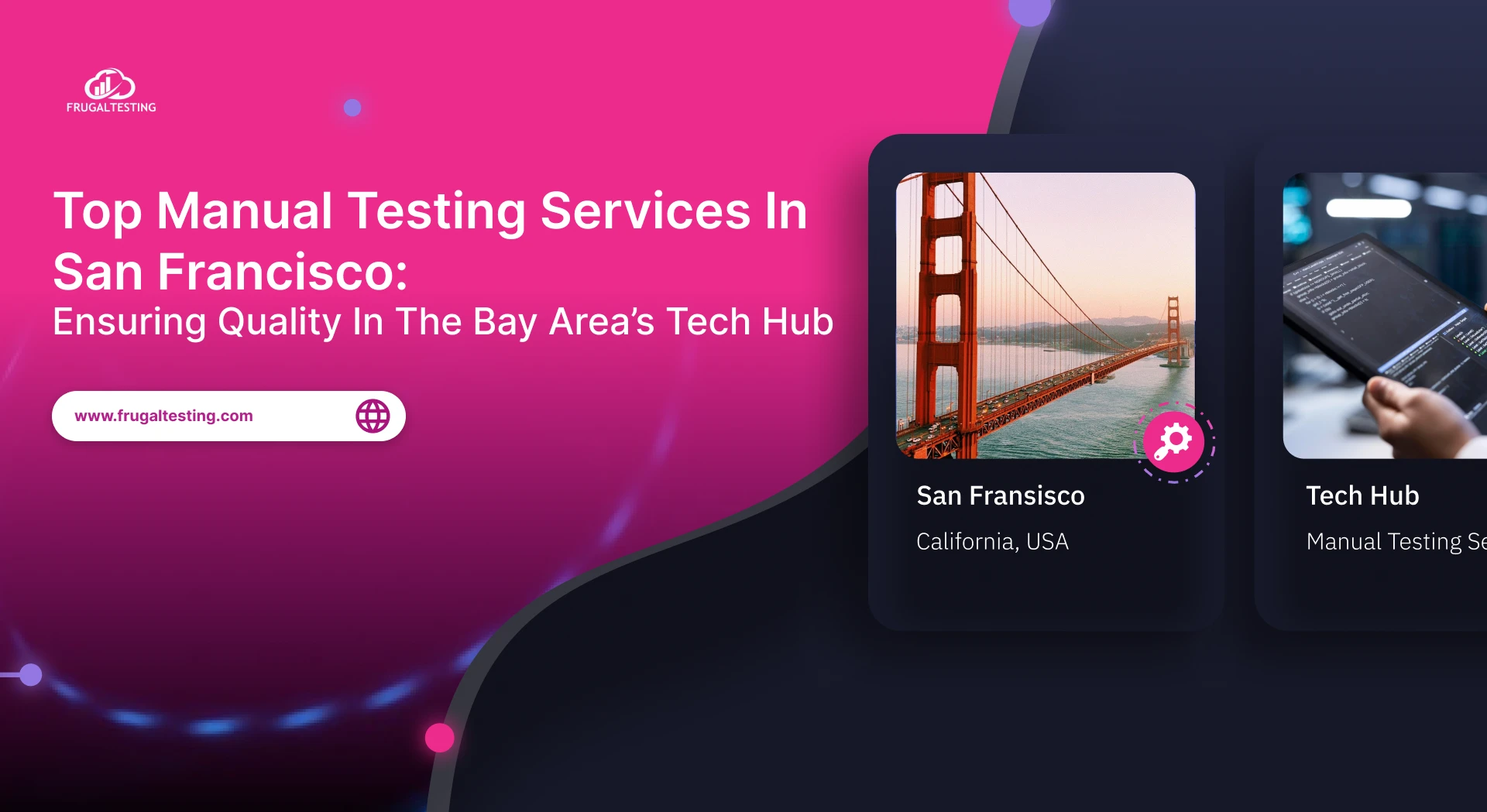WhatsApp is more than a messaging app in 2025. It is a core part of modern communication. From WhatsApp Web and WhatsApp Business to advanced WhatsApp messaging services, the platform transforms how people connect worldwide. In the telecommunications industry, providers and companies use WhatsApp messaging tools to improve customer experience and offer innovative telecommunications solutions.
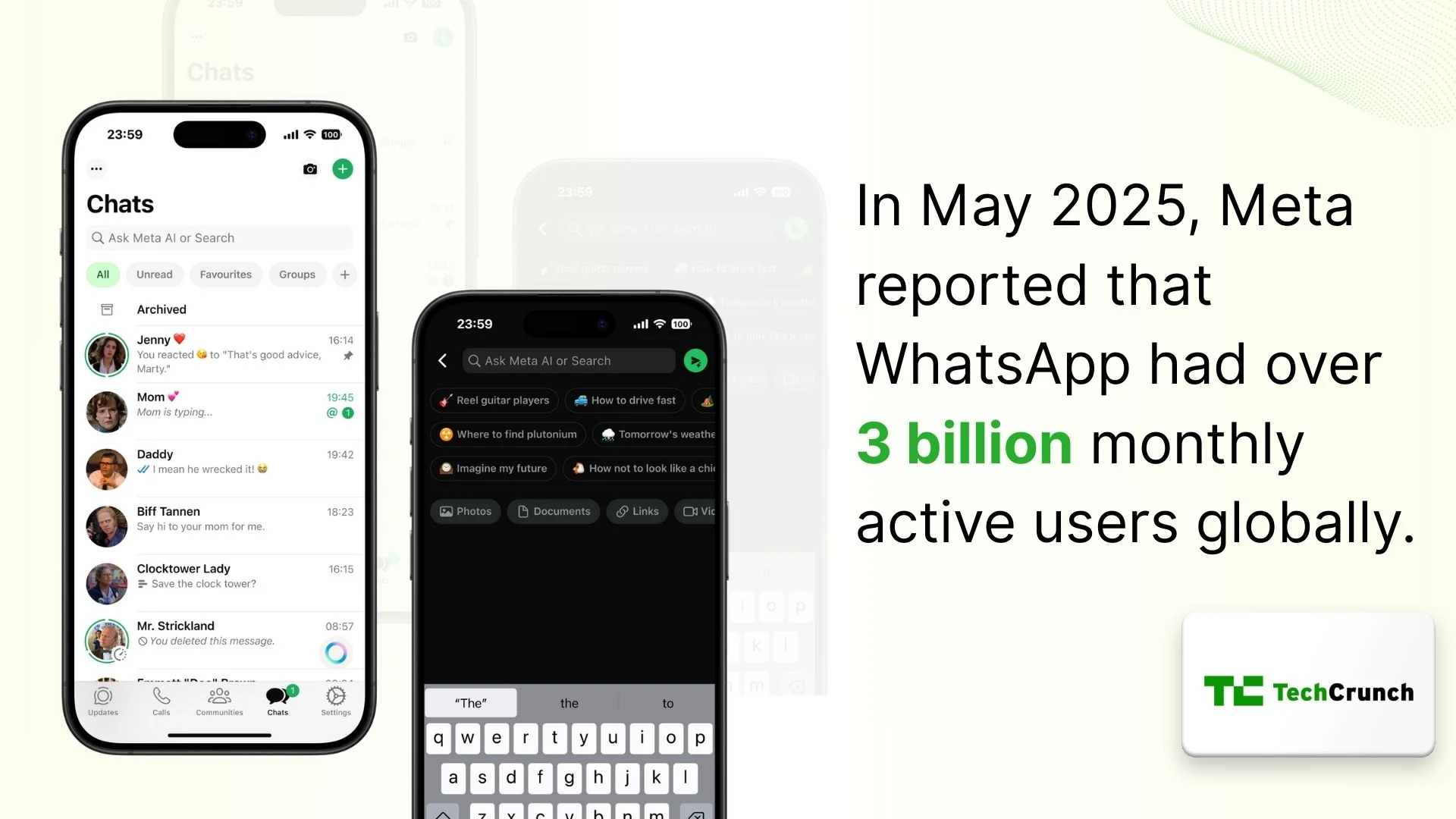
With AI chatbots, customer experience software, and stricter data privacy regulations, the WhatsApp app continues to evolve. As telecommunication providers refine their customer experience strategies, WhatsApp remains at the center of customer experience management and secure digital communication.
💡 What’s next? Keep scrolling to find out:
📌 WhatsApp in 2025 & Modern Communication: Transforming global interactions.
📌 Role in Telecommunications: Driving customer engagement and service delivery.
📌 Use Cases in Telecom & Messaging: Powering notifications and real-time support.
📌 Challenges in Modern Communication: Address privacy, compliance, and competition.
📌 Future of WhatsApp: Advancing with AI integration and cross-border communication.
What is WhatsApp in 2025 and how it Shapes Modern Communication
WhatsApp in 2025 has evolved far beyond simple messaging. It now plays a central role in telecommunication, customer engagement, and secure digital interaction. With advanced tools and services, WhatsApp is reshaping how businesses and individuals connect while ensuring user trust and convenience.
- Seamless Access Across Devices: Web WhatsApp and WhatsApp Web allow users to stay connected from desktops, enabling flexible communication anytime.
- Business-Friendly Communication: WhatsApp Business supports customer experience services, helping brands manage cx customer experience strategies effectively.
- Smarter Conversations with Automation: The WhatsApp app integrates AI chatbots, including the best AI chatbots and free AI chatbots, to streamline support.
- Real-Time User Connectivity: WhatsApp ensures instant interaction with read receipts, live location sharing, and real-time notifications for improved messaging experiences.
- Adoption in the Telecom Industry: Telecommunication companies use WhatsApp messaging services as part of modern telecommunication solutions.
- Stronger Focus on Security: Data privacy laws, user data privacy, and data privacy tools ensure compliance with privacy and data protection regulations.
Role of WhatsApp in telecommunications
WhatsApp has become an integral part of modern telecommunications, providing fast, secure, and reliable messaging services that surpass traditional phone calls and SMS. In 2025, it will play a vital role in bridging personal communication with enterprise-level solutions, supporting global connectivity and digital transformation.
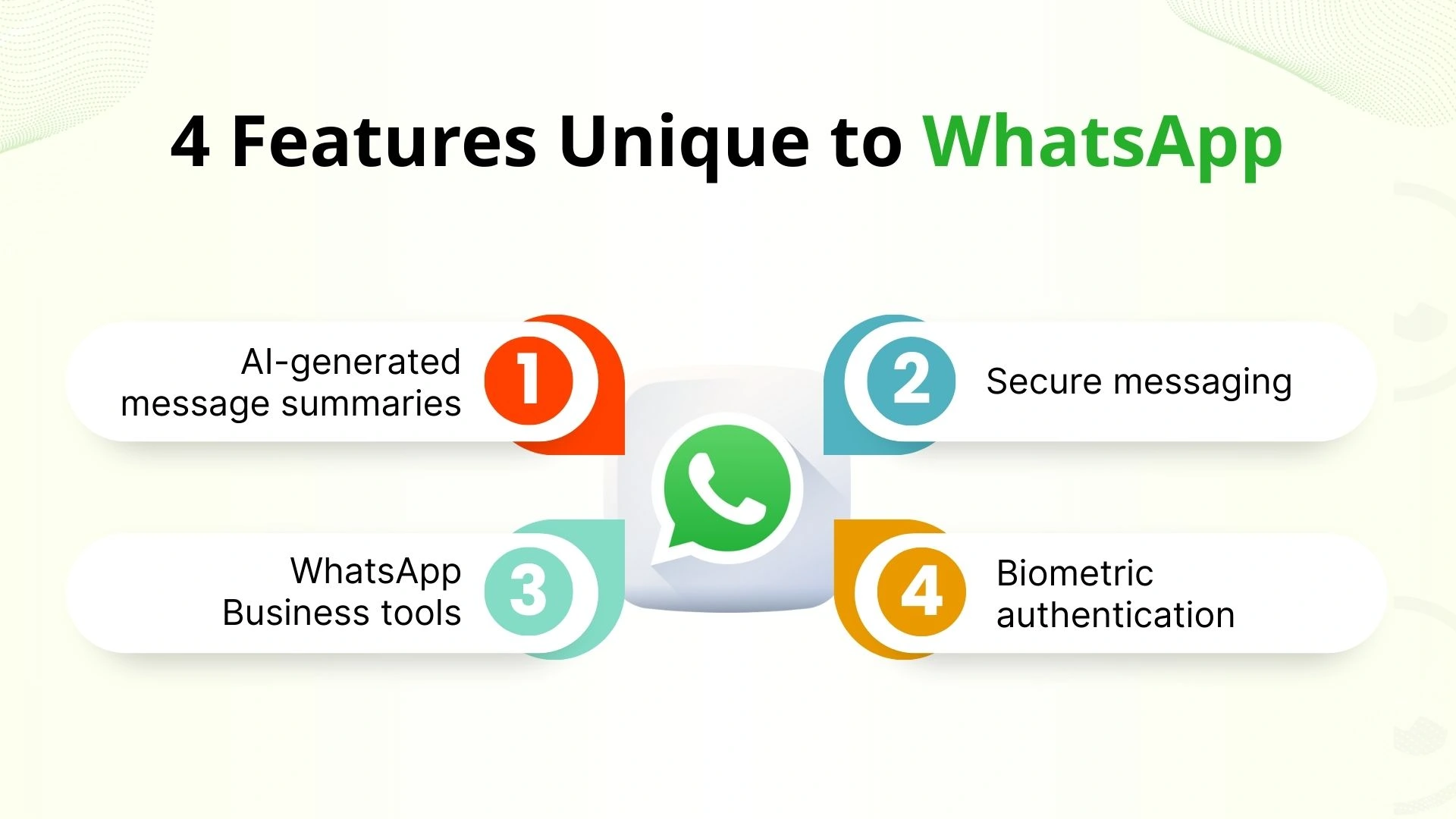
- Driving Telecom Innovation: WhatsApp messaging platforms integrate with telecom networks, enabling providers to expand their digital communication channels.
- Supporting Telecom Services: Many telecommunication service providers now embed WhatsApp solutions into their offerings to enhance customer interaction.
- Boosting Digital Engagement: WhatsApp chatbots and AI-driven messaging allow telecom businesses to deliver automated and efficient support.
- Global Communication Reach: Users benefit from cross-border communication without high telecom charges, ensuring affordability.
- Customer-Centric Approach: Telecom companies use WhatsApp to manage telecom customer experience more effectively.
- Strengthening Telecom Security: End-to-end encryption and privacy protection align with global telecommunication security standards.
Top use cases of WhatsApp in telecom and messaging
In 2025, WhatsApp continues to redefine telecom and messaging by merging speed, reliability, and customer engagement into one platform. Its wide adoption in the digital landscape shows how messaging apps are transforming communication between businesses, telecom providers, and users. From real-time communication to automation, WhatsApp is shaping how organizations connect with customer demands and deliver value.

- Customer Support: WhatsApp support enables live support and faster customer response time, reducing support tickets while improving customer satisfaction scores.
- Business Integration: The WhatsApp Business Platform allows seamless integration with CRM systems and Meta Business Manager for efficient customer communication.
- Marketing Expansion: Businesses use WhatsApp marketing through broadcast messaging, interactive catalogs, and rich media capabilities, turning it into a powerful marketing channel.
- Automation & AI: Automated responses powered by artificial intelligence and natural language processing boost engagement metrics and optimize conversion rates.
- Commerce & Collaboration: WhatsApp Commerce and WhatsApp Flows streamline group communication, voice and video calls, and even predictive analytics for evolving customer behavior.
Challenges WhatsApp faces in modern communication
While WhatsApp dominates global messaging, its role in modern communication comes with notable challenges. From balancing innovation with privacy to meeting customer expectations, the platform must address critical aspects that shape its long-term impact. Telecom providers, businesses, and users alike face unique hurdles when adapting to evolving features.
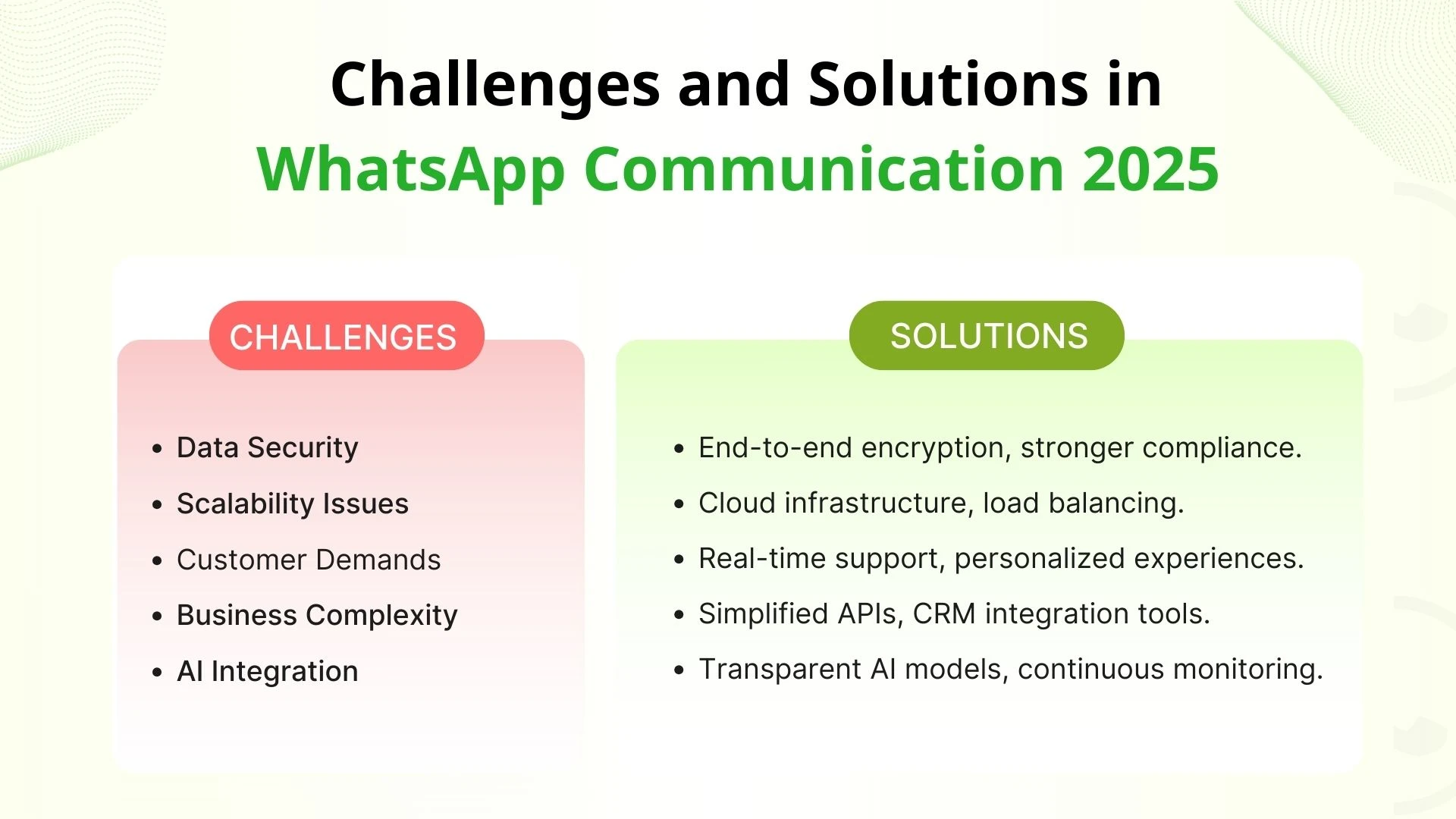
- Data Security: Protecting sensitive information in WhatsApp chat and business profile interactions remains a growing concern.
- Scalability Issues: Handling spikes in traffic, group communication, and network effects during peak time creates pressure on infrastructure.
- Customer Demands: Rapid shifts in user behavior and expectations for real-time communication affect customer satisfaction scores.
- Business Complexity: Managing Official Business Accounts, WhatsApp Manager, and automation tools within diverse CRM systems can complicate operations.
- AI Integration: Balancing AI-driven tools like predictive analytics and sentiment analysis with natural language processing raises concerns over accuracy and transparency.
Difference between WhatsApp and traditional telecom services
WhatsApp has redefined how people connect by offering cloud computing solutions, real-time features, and rich media messaging. Unlike traditional telecom services that rely heavily on operating systems and manual intervention, WhatsApp integrates with CRM systems, automation tools, and cloud testing tools to enhance customer experience.
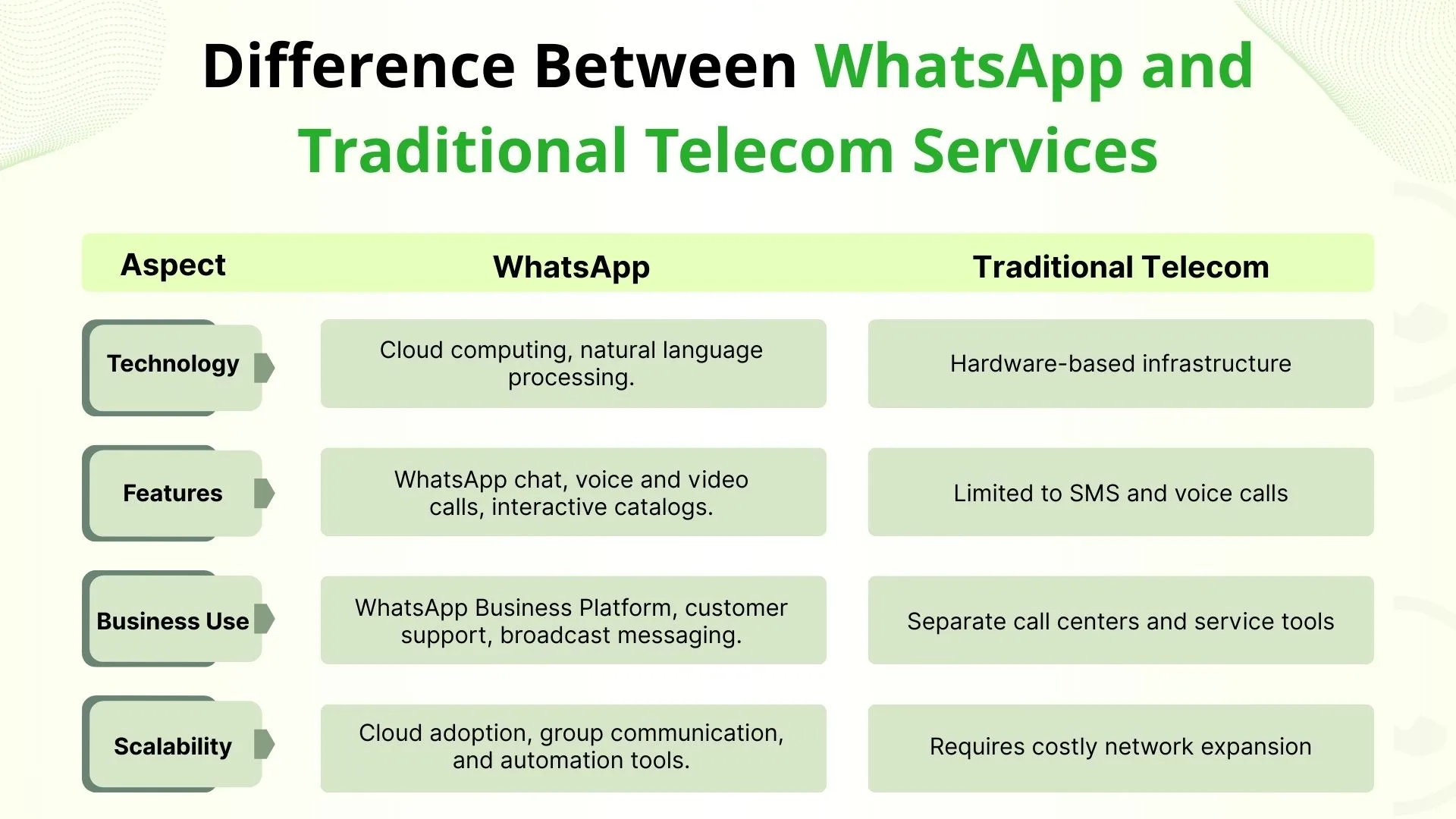
Future of WhatsApp in digital communication
WhatsApp is rapidly shaping the next phase of global connectivity, going beyond simple texting to redefine how people and businesses interact. As the platform evolves, it is expected to integrate more advanced technologies and stronger solutions for seamless engagement.
- Smarter interactions: The rise of AI powered chatbots in WhatsApp will allow businesses to deliver instant support and personalized services.
- Expanding usage: With the growing popularity of the WhatsApp messaging app, it will https://docs.google.com/document/d/1Eawyom654-_yDrLdY7MWg8VXRW8UhTBsVaifQ793CEQ/edit?tab=t.0continue to serve as a central hub for both personal and business communication.
- Strategic advantage: Companies will use WhatsApp as part of their customer experience strategy to improve loyalty and retention.
- Broader scope: As we define telecommunication in modern terms, WhatsApp’s role goes beyond calls and texts to a fully integrated communication platform.
- Industry adoption: Major telecommunication companies are expected to embrace WhatsApp’s features to meet digital-first customer demands.
- Transforming habits: With messaging WhatsApp becoming second nature, the platform will anchor the future of digital communication globally.
Conclusion: WhatsApp’s Role in Modern Telecommunications
WhatsApp has evolved beyond a simple messaging app to become a powerful driver of modern telecommunications. By enabling real-time interactions, advanced automation, and personalized engagement, it continues to reshape how people and businesses connect.
Its integration into customer experience strategy and growing adoption by every telecommunication company highlight its lasting influence. As digital communication advances, WhatsApp stands as a key force bridging technology, customer needs, and the future of connectivity.
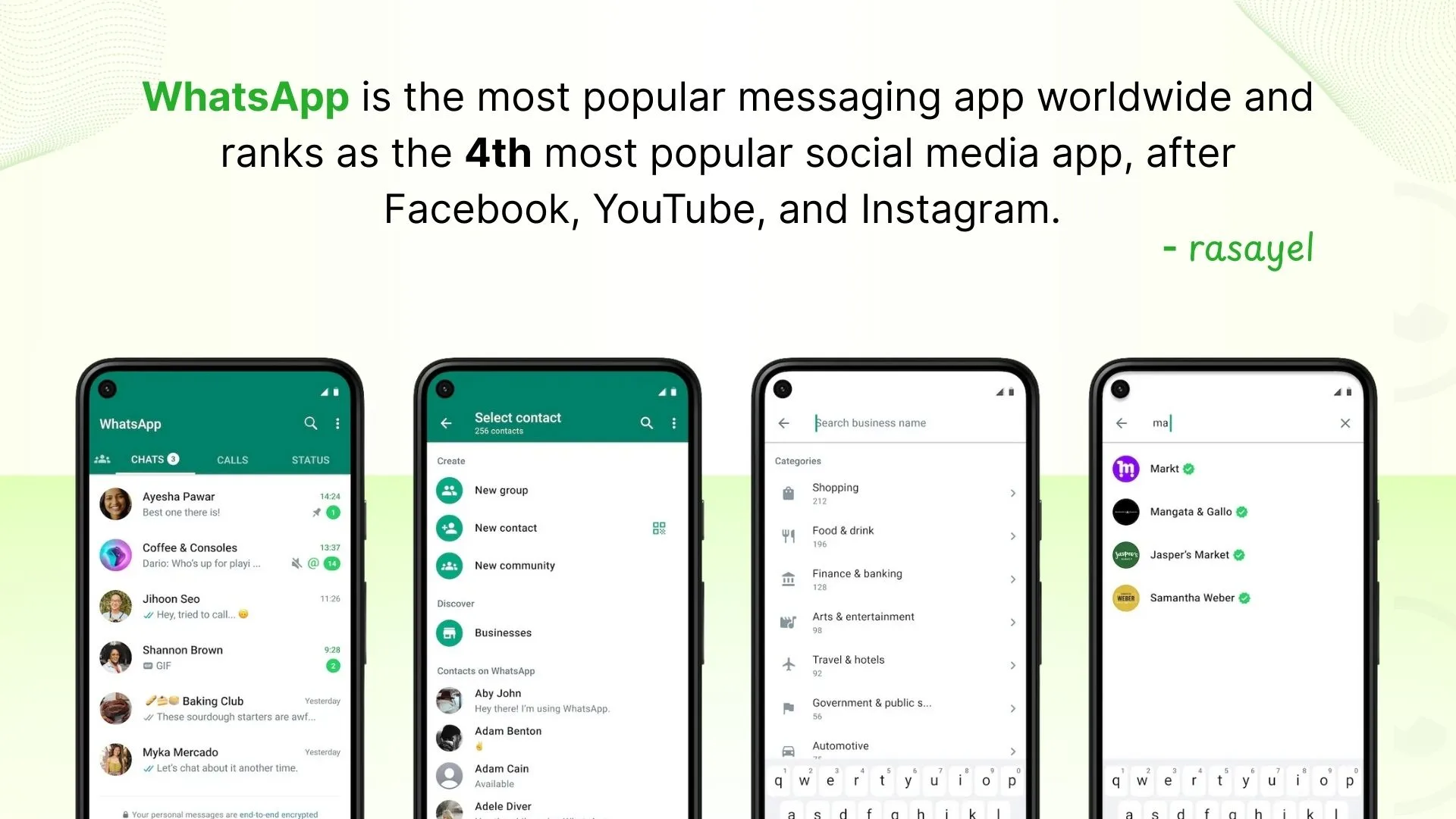
The blog explored WhatsApp’s growing role in digital communication, highlighting its impact on telecom, customer support, and marketing. We covered top use cases like automation, live support, and group communication, along with challenges such as data security, sentiment analysis, and customer demands. Comparisons with traditional telecom services showed its advanced features, while future trends pointed to AI-powered chatbots, customer experience strategy, and adoption by telecommunication companies shaping modern connectivity.
Frugal Testing has established itself as a leading software testing company recognized among the top software testing companies in USA and India. Known for delivering functional testing services, RPA testing services, and cloud-based test automation services, the frugal testing company ensures reliability and scalability. With offerings like software load assessment services and AI-driven test automation services, it continues to strengthen its reputation as a trusted QA testing company, driving innovation in the global testing ecosystem.
People Also Ask
1. Can WhatsApp improve cross-border communication for telecom users?
Yes, WhatsApp removes high roaming costs by offering free international messaging and calls.
It ensures seamless global communication for telecom users.
2. How does WhatsApp Business API help telecom companies?
The API allows telecoms to automate customer service, alerts, and real-time updates.
It improves efficiency and customer engagement.
3. How do telecom companies handle compliance when using WhatsApp?
They use encryption, monitoring tools, and follow strict telecom data regulations.
This ensures secure and compliant communication.
4. How do telecom providers integrate WhatsApp with their services?
Providers use APIs, CRM systems, and chatbots to connect WhatsApp with telecom workflows.
This creates smoother and faster support.
5. Is WhatsApp more cost-effective than traditional telecom services?
Yes, it reduces spending on international calls and SMS for providers and customers. This makes it a cheaper alternative.



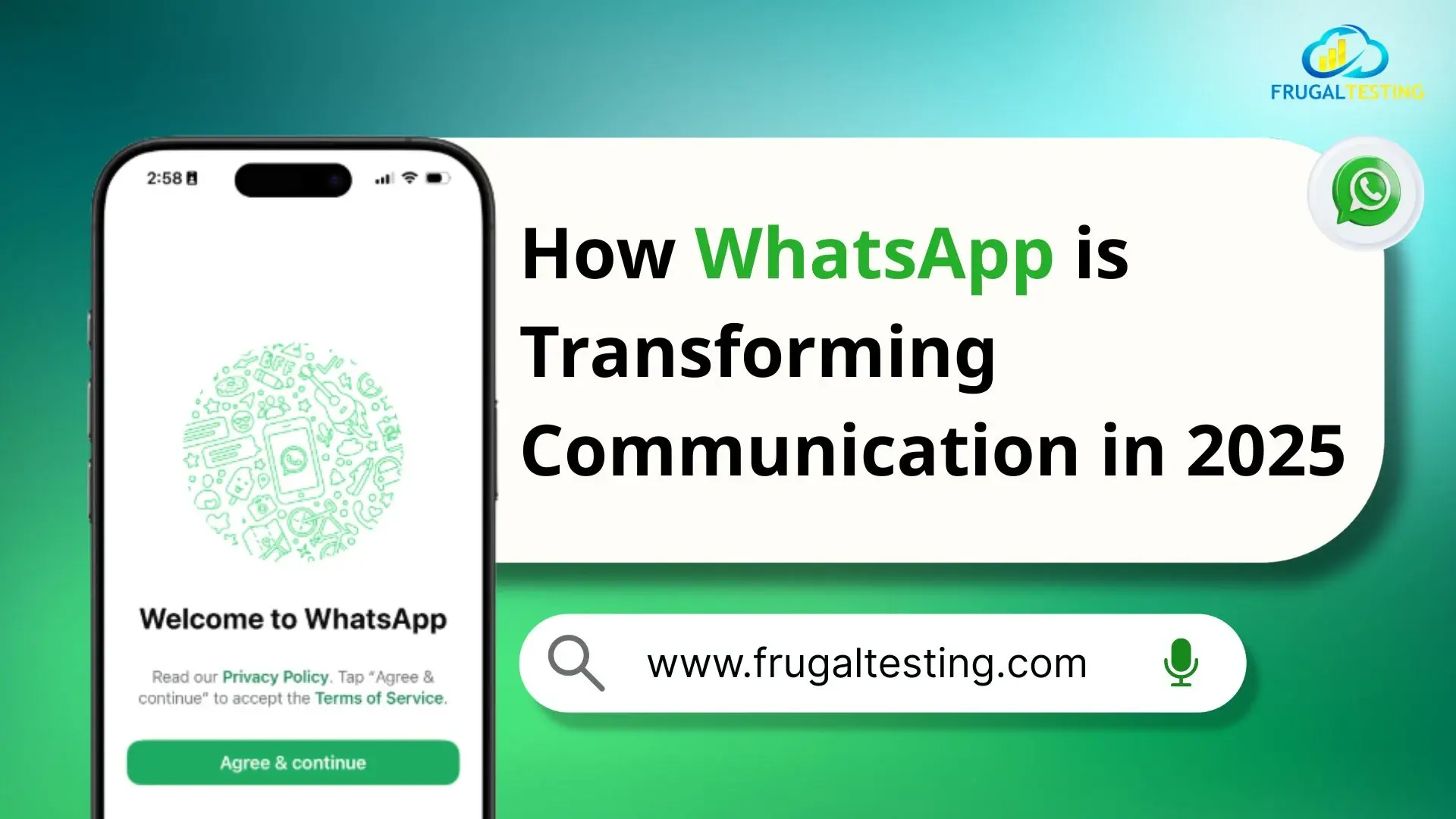
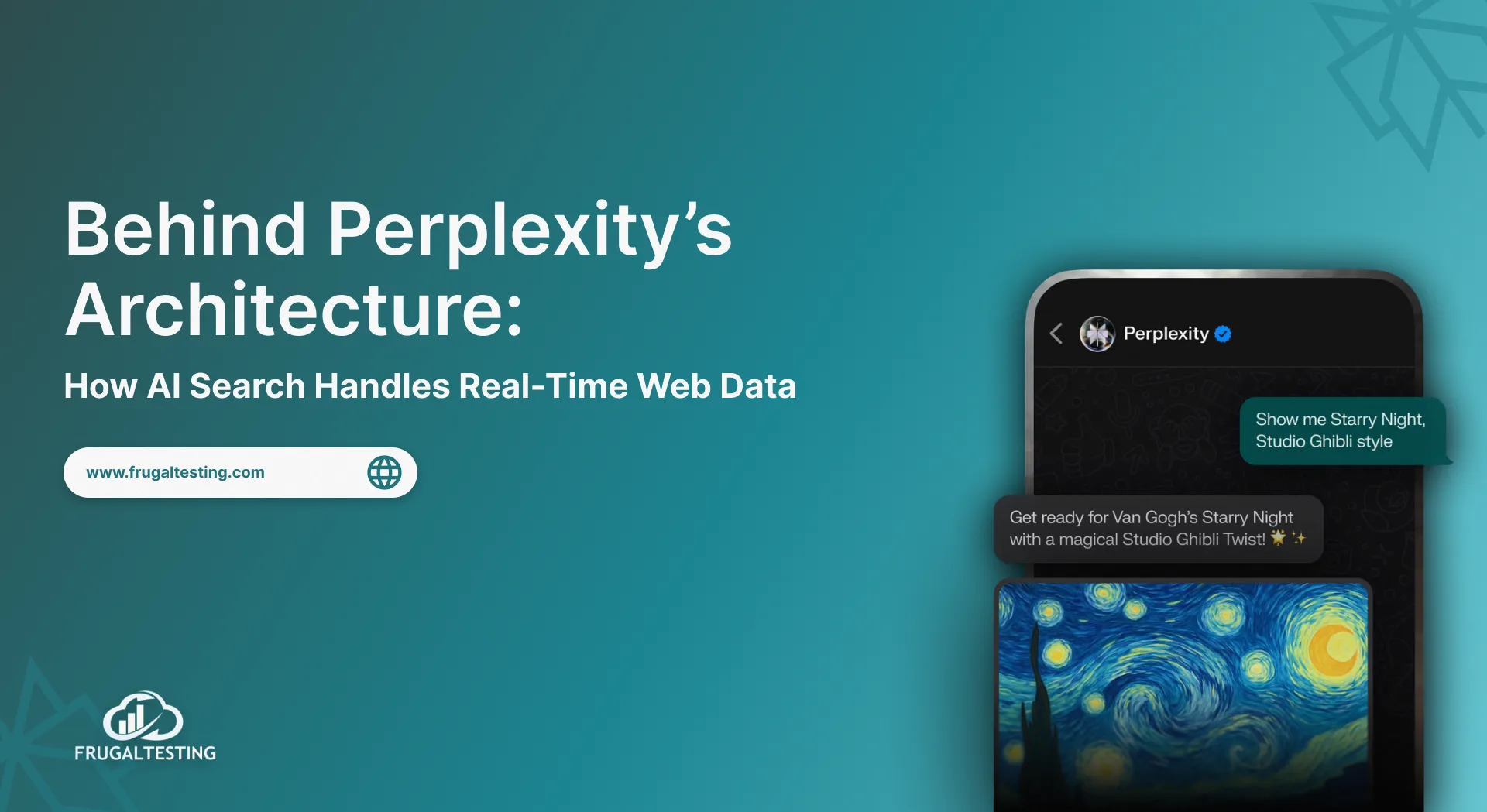
%201.webp)
